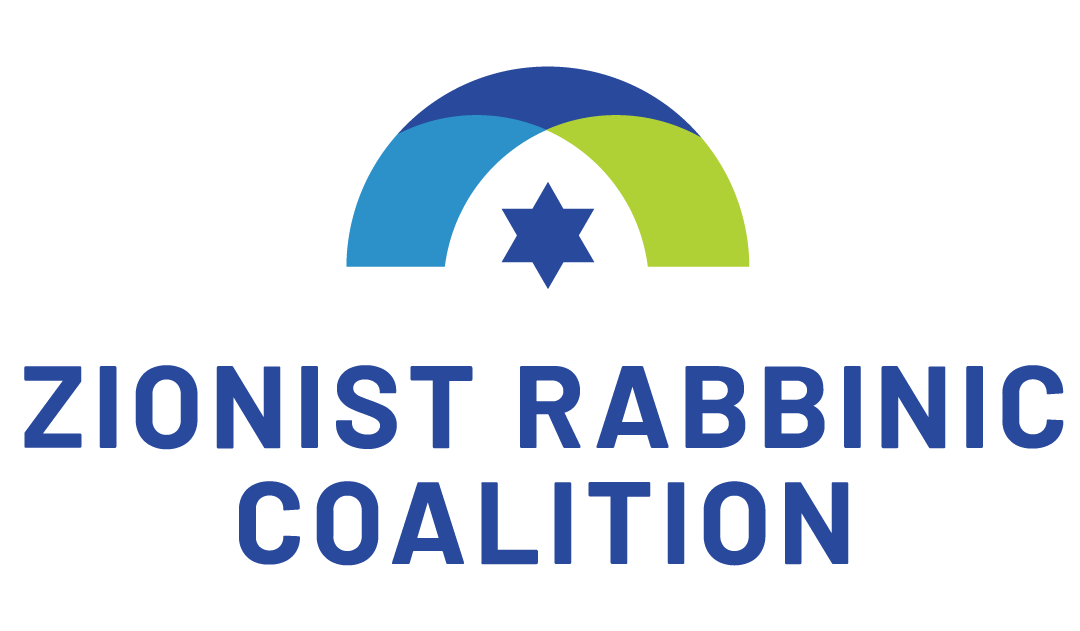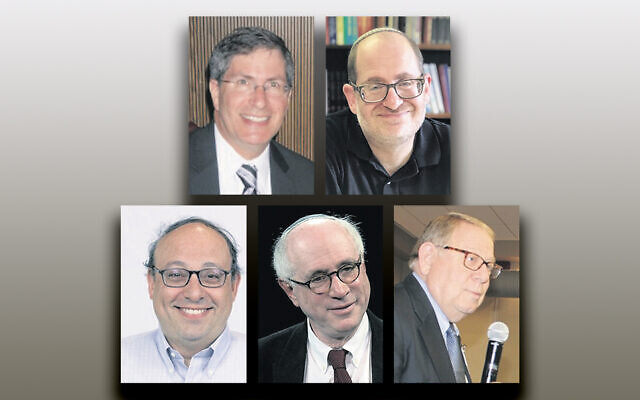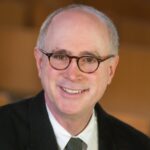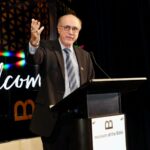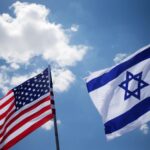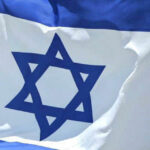Rabbi Arthur Weiner was 6 years old in June 1967. He remembers the fear that he saw on the eve of the Six-Day War. And he remembers the fear in 1973, when he was 12 years old, and his rabbi announced on Yom Kippur morning that Israel had been attacked. “We found out within a few days how close Israel came to being really carved into two,” Rabbi Weiner said. So his commitment to Israel “has been a part of me literally my entire life.”
Now the rabbi of the Conservative Jewish Community Center of Paramus/Congregation Beth Tikvah, Rabbi Weiner recently signed the Rabbinic Letter of Unity that the Zionist Rabbinic Coalition launched in response to the large-scale terror attacks in Israel on October 7.
The ZRC, founded in 2021, is a broad-based organization composed of rabbis from the Reform, Conservative, Orthodox, and Reconstructionist movements who are committed to supporting Israel, to constructively engaging with Israel, and to building bridges between Israel and the Jewish people, Rabbi Stuart Weinblatt, the Coalition’s chair, said. He is the founding rabbi of Congregation B’nai Tzedek, a Conservative synagogue in Potomac, Maryland.
The Coalition sponsors conferences, missions, and seminars. On a recent mission, participating rabbis were guests of the governments of the UAE and Bahrain, where they met with religious leaders. The mission also visited Israel and met with the prime minister, and with members of the opposition. “The primary purpose of that mission was to promote and celebrate the Abraham Accords, because we felt that among rabbis there wasn’t quite enough recognition of how much of a game changer that all was,” Rabbi Weinblatt said.
In the months before October 7, “while Israel and the American Jewish community were being pulled in two directions in terms of the judicial reform issue” — Prime Minister Benjamin Netanyahu’s attempt to change the judicial system and the ongoing resistance to that change — “the position that we took was that, regardless of whether you are in favor of the reform or against the reform, the most important thing rabbis could do was not necessarily to weigh in to tip the scale, but rather to encourage the side that you agree with to come to the table to work out a compromise.”
So the organization supported President Isaac Herzog’s efforts to bring the two sides together.
In light of recent events in Israel, “our work has become that much more important and more challenging,” Rabbi Weinblatt said.
After the horrific attacks on October 7, the organization initiated that Rabbinic Letter of Unity that now has been signed by more than 1,000 rabbis from across the denominations and from all over the United States. The letter expresses unequivocal support for Israel and condemnation of the attacks and of Hamas, and it thanks President Joe Biden and other American and international leaders who have expressed support for Israel and its right to defend itself.
Rabbi Weinblatt shared the letter with the government of Israel through its embassy in the United States and it was “very well received,” he said. “I got a personal note back from the embassy thanking us for the unequivocal support that we voiced.”
Part of what the ZRC tries to do, Rabbi Weinblatt explained, is craft messages that help people better understand Israel’s predicament. The letter details some of the acts of violence perpetrated by the terrorists and explains that there inevitably will be civilian casualties in the resulting war because Hamas purposely uses this population as human shields.
The ZRC also does not consider Israel to be immune from criticism. When it meets privately with Israeli leaders, as it did last summer and at other times, “that’s the place where we can raise concerns,” Rabbi Weinblatt said. “And, in fact, we’ve been a good conduit and a good voice for being able to have frank discussions with leaders in Israel, precisely because of the fact that we’re recognized as being such strong supporters of Israel.”
Of course, now Israel is at war. “I think that this is a time when we need to band together,” Rabbi Weinblatt said. “It is so clear that the forces that seek the destruction of Israel are a threat to Jews everywhere.”
Rabbi Weiner signed the Rabbinic Letter of Unity because he feels it is important to support Israel and to “stop any narrative that would remove the evil of Hamas from the whole story that’s being told right now,” he said.
“It’s an important issue because there are divisions in the American Jewish community, different approaches that preceded the war. The ZRC is a movement of rabbis who aim for the center — who are not extremists on the right or the left. We are the moderate voices of American Jewry — Reform, Conservative and Orthodox — who are trying to educate our congregants and the communities that look to us for guidance and values and inspiration.”
Before October 7, “Israeli society was bitterly divided, more divided than at any time in my lifetime,” he said. “And right now, everybody is talking about the tremendous achdut — the tremendous unity — that is being exhibited in every corner of Israeli society.
“Now we have to match that unity in the American Jewish community, in the pro-Israel community. And that’s what the ZRC is aiming for. We’re not trying to advocate for what Prime Minister Netanyahu should do, or what the opposition should do. We’re not generals, and we’re not politicians. We are rabbis and Jewish communal leaders, and we want our communities to understand what’s at stake right now. And we want to make sure we are doing our part to educate and to mobilize American Jewry, and the pro-Israel community, to support Israel in the terribly difficult decisions that it has to make every second of the day as it fights to destroy Hamas and to get the hostages home.
“There is no Judaism without a sense of affinity for the people of Israel, and the religion of Israel, and the land of Israel,” Rabbi Weiner said. “There are those on the far left and the far right who say that you can have some amalgamation of some of them but they’re wrong — and I can say that because I’m a rabbi. The land, and self-determination in the land, is an important part of our Judaism.
“We have a difficult fight on our hands, and there’s a role for us to play in the United States and there’s a role for rabbis to play. And I think the letter does a very good job of staying away from politics and explaining what’s at stake and what the needs of the hour are.”
Rabbi Eli Garfinkel, who leads Temple Beth El of Somerset, a Conservative synagogue, also signed the letter.
“The most important thing for me is to combat the gaslighting that is going on,” Rabbi Garfinkel said. “People are saying that the attack on October 7 either didn’t happen at all, or that it was a very different kind of thing, that it wasn’t as bad, that it was an act of military resistance, and not the act of barbarity that it was.”
Rabbi Garfinkel’s commitment to Israel goes back to the time he spent in the Young Judea Zionist youth movement. He was one of the “rare rabbinical students who had never been to Israel,” he said. “What was important to him “in theory” became “much more concrete” once he spent a year in the country as a rabbinical student. “In retrospect, just living in a Jewish land was the key.” That year, a classmate and his fiancée were murdered in a terrorist attack. That was also the year that Prime Minister Yitzchak Rabin was assassinated.
“It was traumatic,” Rabbi Garfinkel said, but his commitment to Israel “was sealed.
“In our current environment,” he continued, “silence is interpreted as apathy, and so that is intolerable.”
“I also think that rabbis in particular need to have Israel’s back. It makes me very upset when I see people using the title rabbi and arguing for things that are simply not in the community’s interest. It’s bad enough when I hear the other side calling for ‘River to the Sea’” — a slogan encompassing the land between the Jordan River and the Mediterranean Sea for a totally Palestinian state. “But from them I expect it. When I see a rabbi saying ‘From the River to the Sea,’ I wonder what they are talking about. That is a call for genocide.”
Rabbi Nathaniel Helfgot, who leads Congregation Netivot Shalom, an Orthodox synagogue in Teaneck, is another signatory.
“We often talk about the things that divide the different denominations,” Rabbi Helfgot said. In the ZRC, “our passion for Israel is something that very much unites us.
“Obviously everybody has their own specific perspective on this or that policy issue, but they’re all very devoted to the state of Israel and belief in the Zionist dream and aspirations of am Yisrael.”
Rabbi Helfgot also talked about the understanding he’s gathered from speaking to colleagues in other denominations that many in the non-Orthodox streams sometimes feel that they are not necessarily able to articulate pro-Israel views because the “progressive, very-critical-of-Israel narrative had come to the fore, even in their movements.” So he feels it’s important to demonstrate that there is a strong rabbinic voice that supports the state of Israel, even when some of those voicing that support might be mildly critical of certain policies.
And he stressed that the ZRC’s commitment to the security and welfare of Israel has given its members opportunities to meet with the leadership in Israel and to discuss privately, behind closed doors, the issues and critiques that they feel are important.
Right now, Rabbi Helfgot said, “except for the very extreme kind of anti-Zionist voices in the Jewish community,” which “tend to be amplified by the media way beyond their actual numbers,” the American Jewish community is supportive of Israel.
Rabbi Bennett Miller led Anshe Emeth Memorial Temple, a Reform synagogue in New Brunswick, for 44 years and is now the congregation’s rabbi emeritus. He signed the Rabbinic Letter of Unity because “this was a massacre that took place, and Israel has to do whatever’s necessary to root out the cause of the evil being perpetrated on the world, not only against Israelis and Jews but against the whole world,” he said.
Rabbi Miller grew up in Rochester, N.Y., in a community that was both very progressive and very Zionist,, and his childhood rabbi, Alan Levine z’l, had a profound influence on him. Rabbi Levine was “an extraordinary progressive in the world of human rights and equal rights,” Rabbi Miller recalled. “He advocated for equal rights in our local community and was among those early on who were freedom riders, going down South to advocate for equal rights. He was also a serious Zionist, who eventually made aliya and spent the rest of his life living in Israel.”
Rabbi Miller has tried to follow Rabbi Levine’s example in terms of both progressiveness on human rights and support of Israel. “I think there are different kinds of progressives,” he said. “I would say there are those that are well informed and recognize that being Jewish and being progressive do not have to be in conflict, and that being progressive and being a Zionist doesn’t mean that those values have to be in conflict either. And then there are those who are misinformed and have been hearing a story that is based on falsehoods in terms of Israel being an apartheid state and committing genocide – it’s just factually and fundamentally untrue and a lie that’s being spread as a means to delegitimize Israel and the Jewish people.
“The progressive accusation that Israel is a colonialist state is just fundamentally and patently untrue,” he continued. “It is a return of the Jewish people to its ancestral homeland, where there were always Jews over the course of the last few thousand years.
“And for me, that’s why there’s no distance between my liberal, progressive values and my Zionist values.
“One of the lessons of the Holocaust is that Jews will not accept being victims anymore,” Rabbi Miller said. “Not only for themselves but for others as well, which is why we’ve stood shoulder to shoulder with those, especially in the Black community, over the course of the years.
“Social media today is a very powerful instrument, both for good and for evil, both for getting out information and also for getting out misinformation,” he added. “My hope would be that people don’t accept things at face value; there are ways to verify information, and to know the difference between falsehoods and truth.
“I think there are three wars that are going on right now,” he concluded. “One is a war between Hamas and Israel. The second is a war between Hamas and the Jewish people – it’s in the Hamas charter to not only eradicate Israel but to create one state that is free of Jews. And the third is a war against the liberal democracies of the world.
“Not only is it important for the Jewish people to be fully engaged in that battle in order to save the world that we know and that we want, but also for all of the other peoples of the world to be engaged, because we know what happens when people stand by in silence.
“I think the message we all need to hear is we don’t have a choice. We have to focus on doing everything we can to eradicate the evils that are taking place in the world or they will destroy the world that we know. “
